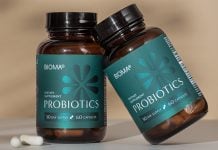
Varieties of Milk: What’s your go-to milk?
Many of us drink milk – it’s a great source of vitamin D, protein, calcium and so much more! On the other hand, some people are allergic to dairy milk and need another alternative of milk or don’t want the higher fat content of whole milk – that’s where plant-based milk comes in. When it comes to plant-based milk they can range from coconut to rice to even hemp. There are literally over a half-dozen varieties of milk!
The many varieties of milk?
The mind spins at all the different varieties of milk! Are all milks created equal? Should only certain groups drink certain types of milk?
Knowing the difference between the different kinds of milk can help you cut down your fat consumption or it can help you find a good alternative for your allergies.
We needed some help to break down the pros/cons of 7 of the most common different varieties of milk.
 Milk is Milk?
Milk is Milk?
Alissa Rumsey, Registered Dietitian and Spokesperson for the Academy of Nutrition and Dietetics, to help us out with a rundown on the 7 most common types of milk that I’ve run across: whole or 2%, fat-free or 1%, almond, soy, coconut, rice, and hemp. This is her breakdown:
Whole milk or 2% milk
I generally only recommend this for children aged 2 or less. These kinds of milk have a high percentage of saturated fat, and along with that comes more calories.
Whole milk has ~150 calories per 8oz, vs skim milk which has 83 calories, or 1% which has 100 calories for the same serving size.
Fat-free or 1% milk
For adults and children ages 2 and up, I recommend skimming (nonfat) milk, or 1 percent milk if they like a little extra creaminess.
Skim and 1 percent milk have less artery-clogging saturated fat compared to whole or 2 percent milk, while having the same amount of good nutrients like protein, calcium, vitamin D, potassium, and other vitamins and minerals.
Almond
Almond milk is a popular choice for those with milk and/or soy allergies, people who are lactose intolerant, and vegetarians or vegans. Though it is a heart-healthy choice, as it’s low in saturated fat and cholesterol, it has very little protein – generally about 1 gram per 8oz.
Most brands are fortified with calcium and vitamin D, but check the nutrition facts label to be sure.
Unsweetened almond milk tends to be lower in calories than cow or soy milk.
Choose the unsweetened version to minimize sugar intake. To make sure protein needs are met, pair with high protein whole grains such as quinoa, and include nuts, nut butter, chia seeds, hemp seeds, and legumes.
One of my favorite breakfasts is cooked quinoa made with almond milk, topped with blueberries, raspberries, walnuts, and chia seeds.
Soy
Naturally low in saturated fat and cholesterol-free. It contains the most protein out of all the non-dairy milk, with about 7 grams per 8oz (compared to cow’s milk with 8 grams per 8oz).
It also contains omega-3 fatty acids. Most brands are fortified with calcium, and Vitamins A, D, and B12 – so the nutritional content is similar to cow’s milk. Choose the unsweetened version to minimize sugar intake.
 Coconut
Coconut
Coconut milk can be used as a dairy substitute as it does not contain lactose or milk protein.
Make sure to read labels – full-fat versions may contain a lot of calories, which could be detrimental if you are watching your weight. If you are not consuming dairy products, be sure to pick a version that is fortified with calcium. It is fairly low in protein, with 1 gram per 8oz serving.
Rice
Rice milk is another option for people with allergies, or vegetarians and vegans. Similar to almond milk, it is low in protein with just 1 gram per 8oz but many brands are fortified with calcium and vitamin D.
Hemp
Hemp milk is made from hulled hemp seeds, water, and generally a sweetener. Its claim to fame is the high amount of omega-3 fatty acids – one cup can provide close to an entire day’s recommended intake. It is moderate in protein, with about 3-5 grams of protein per 8 ounces. As with other non-dairy milk, look for a brand fortified with calcium and vitamin D.
Bottom-Line Recommendations
For a final breakdown on the different varieties of milk, Alissa said,
With the exception of children less than 2 years of age (who need whole milk), the type of milk to purchase comes down to any health or personal reasons such as allergies or a vegan diet.
“For those choosing an alternative to cow’s milk, it may have less protein, calcium, or vitamin D, so ensure you are choosing other foods to meet these nutrient needs.”
“While cow’s milk is one of the most concentrated natural sources of calcium, there are calcium-fortified non-dairy alternatives including soy, almond, and rice milk.
You can also get calcium from yogurt, cheese, broccoli, kale, almonds, beans, and calcium-fortified foods such as orange juice.”
Wrap-Up
When it comes to dairy and plant-based milk there are many alternatives to people with dairy allergies that will provide a good dose of calcium and vitamin D.
That being said, there are relatively few alternatives that can provide as much protein as dairy milk.
While soy could be a good alternative, this can be compensated for by other parts of your diet. Because all of this plant-based milk can be used in cooking just like dairy-based milk, pick the variety that fits your lifestyle, nutritional aspirations, and will help you reach your goals.
There’s a wild world of milk out there, find the one that fits you best!
- Post-Workout Meal: Getting the Most from Your Workout - January 22, 2024
- 6 Ab Exercises To Blast Your Core - December 17, 2023
- 10 Office Exercises You Can Do To Burn Calories - November 19, 2023

 Milk is Milk?
Milk is Milk? Coconut
Coconut

